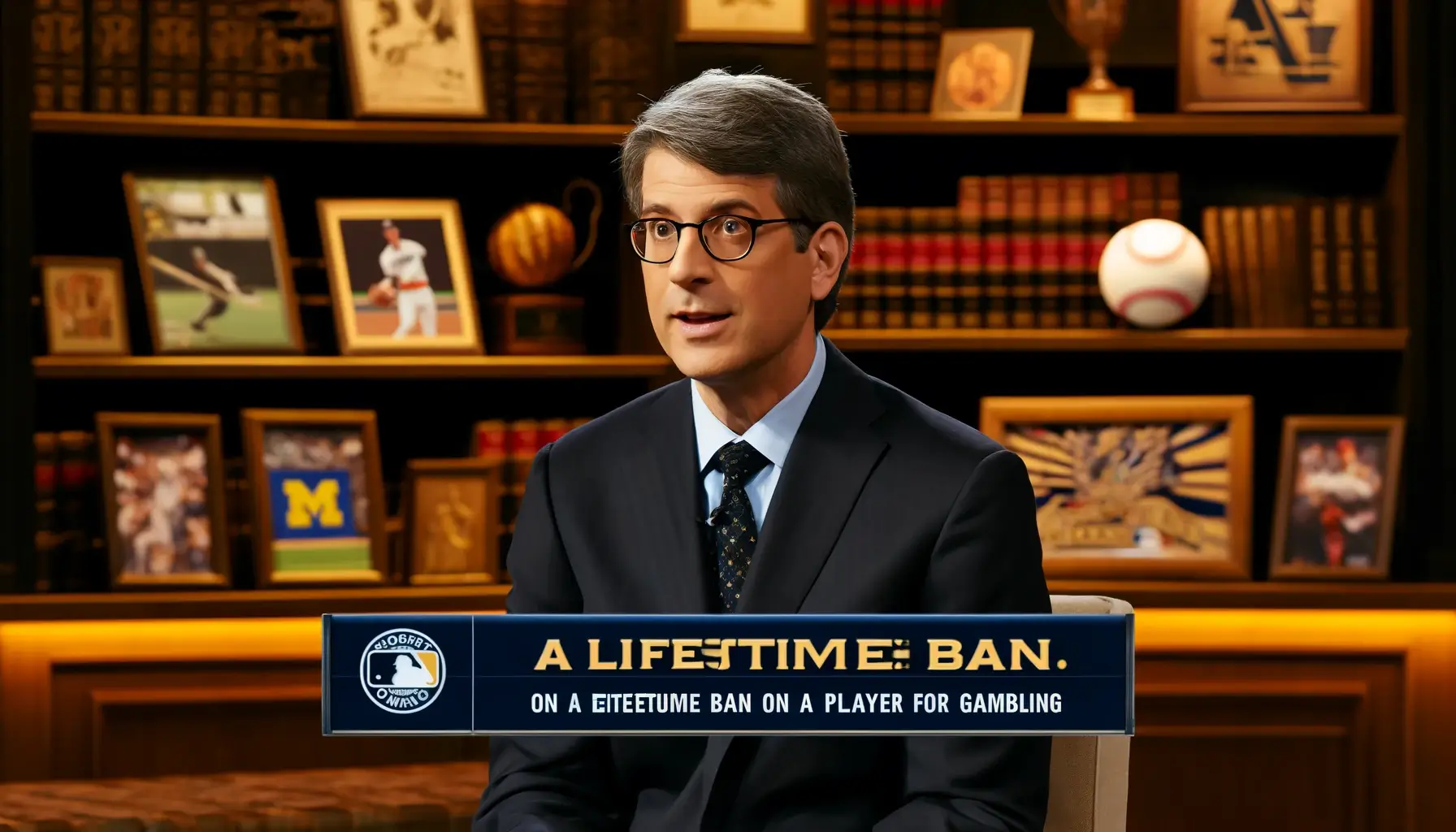In a landmark decision, Major League Baseball (MLB) has imposed a lifetime MLB bans on a player for involvement in gambling activities. This decisive action underscores the league’s commitment to upholding the integrity of the sport. The news has reverberated throughout the sports community, igniting discussions about the implications of such severe penalties.
The Incident
The player, whose identity remains confidential pending further investigation, was found to have placed multiple bets on MLB games, including those involving his own team. This breach of ethical conduct prompted MLB Commissioner Rob Manfred to enforce a lifetime ban, marking one of the most severe punishments in the league’s history. “Our commitment to maintaining the integrity of baseball is unwavering,” Manfred stated. “We cannot tolerate any actions that compromise the fairness and trust in our sport.”
Historical Context
Gambling scandals in baseball are not unprecedented. The most infamous case involved Pete Rose, the all-time hits leader, who was banned for life in 1989 for betting on games while managing the Cincinnati Reds. Rose’s ban has been a cautionary tale within the sport, symbolizing the high stakes of gambling infractions. More recently, the 2017 Houston Astros sign-stealing scandal highlighted the lengths to which the league will go to protect the sport’s integrity.
Expert Opinion
To gain a deeper understanding of the implications of this lifetime ban, we consulted Dr. Mark Evans, a sports law expert at the University of Michigan (U-M). Dr. Evans provided a comprehensive analysis of the situation, emphasizing the critical importance of integrity in professional sports.
“Gambling by players on their own sport, especially their own games, is a severe violation that poses significant risks to the sport’s integrity,” Dr. Evans noted. “Such actions can lead to doubts about the authenticity of game outcomes, potentially eroding public trust in the competition. MLB’s decision to impose a lifetime ban reflects a necessary measure to safeguard the integrity of the game.”

Dr. Evans also highlighted the broader implications for the player community and the preventive message this ban sends. “This ban serves as a stark reminder to all athletes about the strict boundaries regarding gambling. It acts as a deterrent, ensuring that players understand the grave consequences of such actions and the importance of maintaining a fair playing field.”
Reactions from the Baseball Community
The baseball community has responded with a mixture of shock, support, and calls for further discussion. Many players, coaches, and analysts agree that stringent measures are essential to preserve the sport’s integrity. Hall of Famer Cal Ripken Jr. commented, “The integrity of the game is paramount. This decision, though harsh, is necessary to send a clear message that gambling on the sport will not be tolerated.”
Conversely, some voices within the community advocate for a more rehabilitative approach rather than an outright lifetime ban. Former MLB pitcher Jim Abbott suggested, “While it is crucial to protect the game’s integrity, we should also consider offering support and rehabilitation for those who make mistakes. Everyone deserves a chance to learn from their errors and make amends.”
The Legal and Ethical Ramifications
The legal and ethical ramifications of this decision extend beyond the baseball diamond. It raises questions about the role of sports organizations in regulating player behavior and the balance between punishment and rehabilitation. Legal experts suggest that while lifetime bans serve as powerful deterrents, they must be applied judiciously to ensure fairness and proportionality.
Additionally, this incident has sparked discussions about the broader gambling culture within sports. With the increasing legalization of sports betting across the United States, professional leagues face growing challenges in managing and monitoring gambling activities. MLB, along with other major sports leagues, must continuously evolve their policies and enforcement mechanisms to address these challenges effectively.
Future Implications
This lifetime ban will likely have long-lasting implications for MLB and its players. It sets a precedent for how the league handles future gambling infractions and reinforces the importance of ethical conduct among players. Furthermore, it highlights the need for ongoing education and support programs to help players navigate the complexities of professional sports and personal conduct.
As MLB continues to navigate this challenging landscape, the league’s commitment to integrity and fairness remains a guiding principle. This decision serves as a clear message to all stakeholders that MLB will take decisive action to protect the sport’s credibility and trustworthiness.
Conclusion
The lifetime ban of an MLB player for gambling underscores the league’s unwavering stance on maintaining the integrity of the sport. This decision, while controversial, aims to deter future infractions and preserve the fairness of the game. As the sports community continues to grapple with the implications of this ban, the emphasis remains on ensuring a fair and trustworthy environment for both players and fans.





